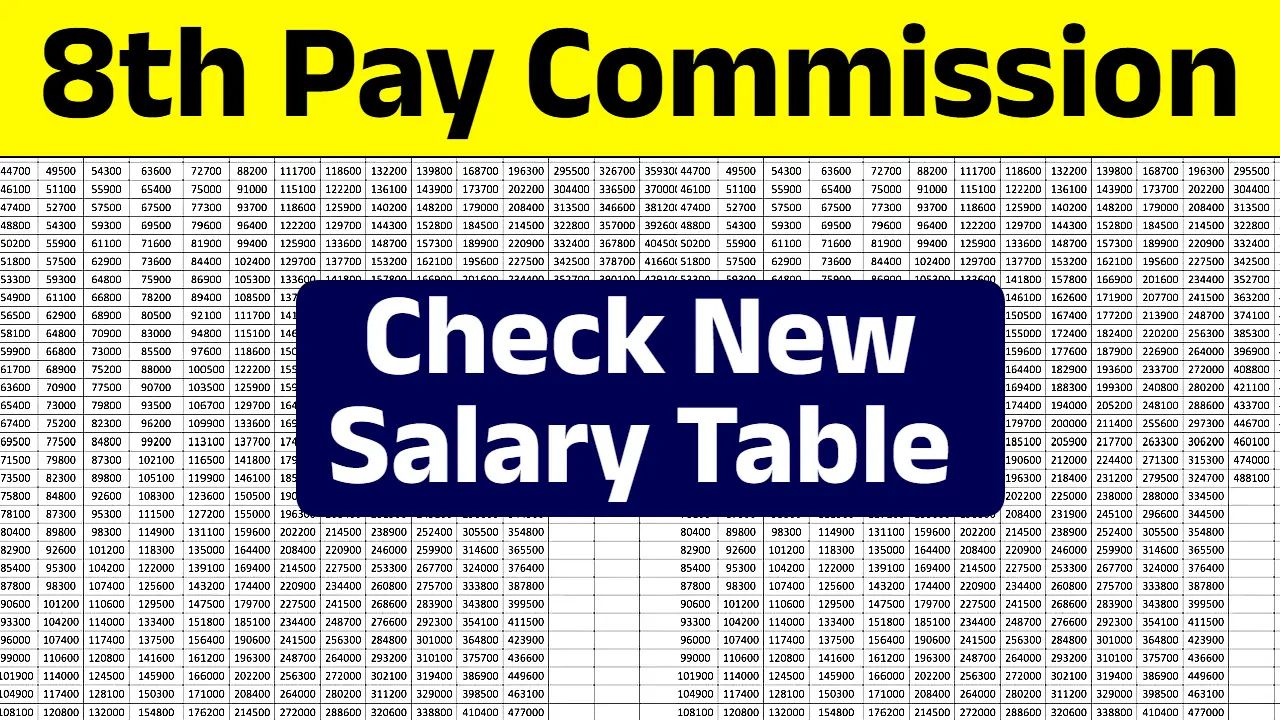The Indian government is gearing up for a significant overhaul of central government employee salaries with the anticipated implementation of the 8th Pay Commission. This landmark development is poised to deliver a substantial increase in basic pay, offering a much-needed relief for millions of public sector employees grappling with inflation and rising living costs.
As discussions progress, expectations are rising across various departments, and experts predict a transformative impact on both employees and the broader economy.
When is the 8th Pay Commission Expected?
The 7th Pay Commission was implemented in January 2016, with recommendations coming into effect from mid-2016. Historically, pay commissions are set up every 10 years. Following this cycle, the 8th Pay Commission is expected to be constituted around 2024-25, with revised pay structures likely to be implemented from January 2026.
While there has been no official announcement yet, discussions within administrative circles suggest the groundwork is already being laid for the next big reform.
Expected Jump in Basic Pay
The most anticipated aspect of the 8th Pay Commission is the basic pay hike, which forms the foundation for calculating other allowances such as DA (Dearness Allowance), HRA (House Rent Allowance), and TA (Travel Allowance). According to early projections by financial analysts and employee unions, the basic pay could witness a hike of 25% to 35%, depending on inflation trends and revenue capabilities of the government.
If implemented, this jump will mark one of the biggest salary boosts for government employees in recent years.
Impact on Government Employees
A rise in basic pay directly affects the take-home salary and overall financial wellbeing of government employees. With increasing expenses in housing, education, and healthcare, the new pay structure will help restore some balance. Pensioners are also likely to benefit, as revised pay scales typically lead to increased pensions under the One Rank One Pension framework.
Additionally, morale within government departments is expected to receive a significant uplift, potentially improving productivity and retention.
Macroeconomic Ripple Effect
The 8th Pay Commission’s salary revisions won’t just impact government employees. A surge in disposable income could stimulate domestic demand, especially in housing, automobiles, consumer durables, and retail sectors. Historically, past pay commissions have had a cascading effect on economic growth, albeit with short-term inflationary pressures.
Moreover, private sector companies may feel the heat to adjust their own pay structures, leading to a more competitive labor market.
Budgetary Concerns and Fiscal Discipline
While the salary hike is a welcome move for employees, it also poses significant challenges for the exchequer. With nearly 50 lakh central government employees and 65 lakh pensioners, the financial burden on the government could run into several lakh crores over the coming years.
Balancing employee welfare with fiscal prudence will be key. Policymakers will have to find innovative ways to generate revenue, streamline spending, and ensure that this increase doesn’t destabilize budget targets.
What Can Employees Expect Going Forward?
Although the exact recommendations of the 8th Pay Commission are yet to be finalized, employees can expect the following:
- A steep hike in basic pay across all levels of government service.
- Revised fitment factors and pay matrix levels that align with current cost-of-living indices.
- Rationalization of allowances and benefits to ensure equitable distribution.
- Possible introduction of performance-based incentives in line with modern administrative practices.
Employee unions are already lobbying for early implementation and favorable terms, and their voices will likely influence the final framework.
Conclusion: A Game-Changer in the Making
The 8th Pay Commission has the potential to be a game-changer for the Indian workforce and economy. With basic pay set for a huge jump, the upcoming salary boost will bring relief, recognition, and renewed motivation to millions of government employees.
As anticipation builds, all eyes are now on the Finance Ministry and the central leadership to officially kickstart the process, bringing clarity and direction to what could be the most significant fiscal decision of the decade.




